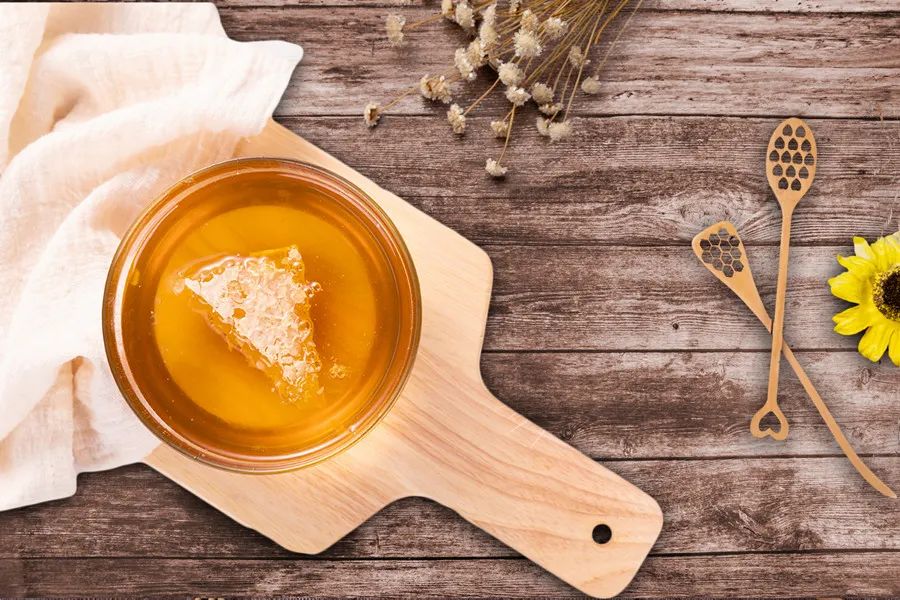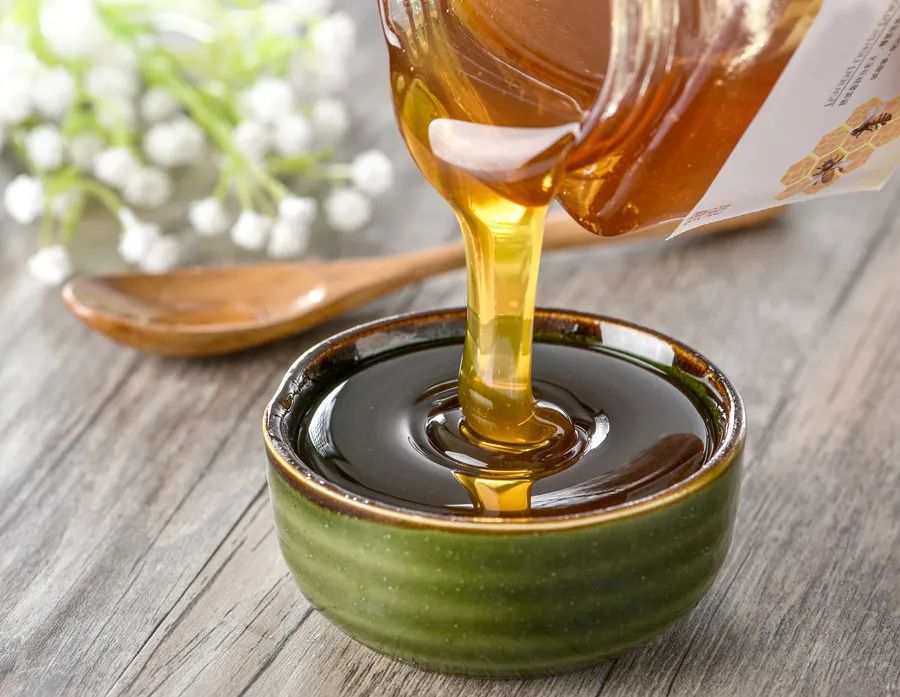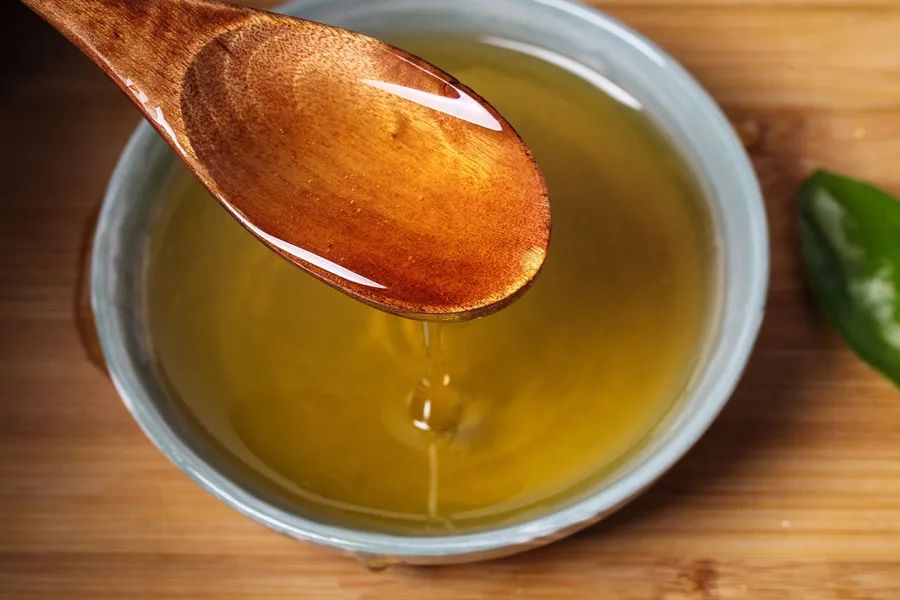Traditional Chinese Medicine on the Benefits of Honey
Traditional Chinese Medicine on the Benefits of Honey
Five Core Functions of Honey: Clearing heat, nourishing the middle, detoxifying, moisturizing dryness, and alleviating pain.
Medicinal and Culinary Value of Honey
Honey, derived from nectar collected by bees from flowering plants and fully fermented in hives, is a nutrient-rich substance that serves both dietary and medicinal purposes. Consuming honey in moderation during autumn can moisturize dryness and detoxify, alleviating the harmful effects of seasonal dryness.

Pharmacological Properties
As noted in the Chinese Pharmacopoeia (2020 edition):
Nature and Taste: Sweet, neutral. Enters the lung, spleen, and large intestine meridians.
Functions: Nourishes the middle, moistens dryness, alleviates pain, and detoxifies. Externally, it promotes tissue regeneration and wound healing.
Indications: Used for abdominal pain due to deficiency, lung dryness and cough, constipation, and detoxifying certain toxic substances. Externally, it treats unhealed ulcers and burns.
Dosage: 15–30 grams.
Storage: Store in a cool, dry place.
Renowned Ming dynasty physician Li Shizhen noted in the Compendium of Materia Medica that honey's efficacy varies with its preparation:
Raw honey has a cooling nature, which clears heat.
Processed honey becomes warming, nourishing the middle.
Its sweet and mild properties detoxify, moisturize dryness, and alleviate pain.
Modern Medical Findings
Scientific studies show that honey aids digestion, improves appetite, promotes restful sleep, strengthens the body, enhances cognitive function, boosts hemoglobin production, supports heart health, and acts as an antiseptic.

Nutritional Value of Honey
Honey is composed primarily of glucose and fructose, which account for 70% of its content and are directly absorbed without digestion. It also contains proteins, amino acids, vitamins (A, B, C, D), and minerals like calcium, phosphorus, potassium, magnesium, and iron. With up to 18 types of amino acids, it is rich in enzymes such as amylase and lipase, making it one of the most enzyme-dense natural foods.
Practical Uses of Honey
Hangover Relief: Consuming 50g of honey before drinking or honey water after drinking can alleviate hangover symptoms and headaches.
Fatigue Relief: Drinking honey water quickly replenishes energy and combats tiredness.
Digestive Aid: Honey normalizes stomach acid secretion and enhances intestinal motility. Taking 25g of honey on an empty stomach morning and evening can reduce constipation.
Promoting Sleep: Honey's magnesium, phosphorus, and calcium content soothes the nervous system, aiding relaxation and sleep.
Skin Care: Honey nourishes the skin, kills bacteria, prevents pigmentation, and promotes skin regeneration.
Recommended Groups and Cautions
Suitable for:
Individuals with constipation, intestinal discomfort, or hormonal imbalances.
Those with weakened immunity or suboptimal health.
Not Recommended for:
Children aged 1–3, diabetics, and individuals with spleen deficiency or dampness accumulation.
Those in humid climates where honey may exacerbate damp-heat conditions.
Consumption Guidelines:
Limit intake to 20–30g per day, avoiding amounts over 50g.
Avoid mixing honey with soy milk, as their combination can cause indigestion and nutrient loss.
Do not combine honey with onions, garlic, leeks, or carp, as these combinations may cause adverse effects.
Use warm water below 40°C (104°F) to preserve honey's nutrients and bioactive compounds.
Store in non-metal containers in a dry, cool (5–10°C), and dark environment to prevent fermentation and contamination.
Traditional Remedies with Honey
Honey Radish Juice: Mix 60ml of fresh radish juice with a spoonful of honey to alleviate constipation.
Honeysuckle Honey Drink: Prepare a decoction of 30g honeysuckle and mix with 20g honey to relieve sore throat, flu, and constipation.
Honey Pear Soup: Cook sliced pears with water, let cool, and mix with honey to soothe dry cough and moisturize the lungs.
Different Honey Types and Their Properties
The properties and benefits of honey vary with the source plant:
Multifloral Honey: Balanced properties with comprehensive nutritional benefits.
Rapeseed Honey: Sweet, warming, clears heat, and relieves dryness; suitable for liver and gallbladder conditions.
Locust Honey: Sweet, cooling, clears heat and detoxifies; ideal for hemorrhoids and improved blood circulation.
Goji Honey: Neutral, nourishes kidney essence and liver; beneficial for yin deficiency.
Longan Honey: Warm, strengthens the spleen, calms the heart, and nourishes blood; suited for blood deficiency.
Loquat Honey: Cooling, moistens the lungs, and relieves cough; best for dry cough.
Lychee Honey: Warming, nourishes the spleen and liver, alleviates pain; suitable for individuals with cold constitutions.

